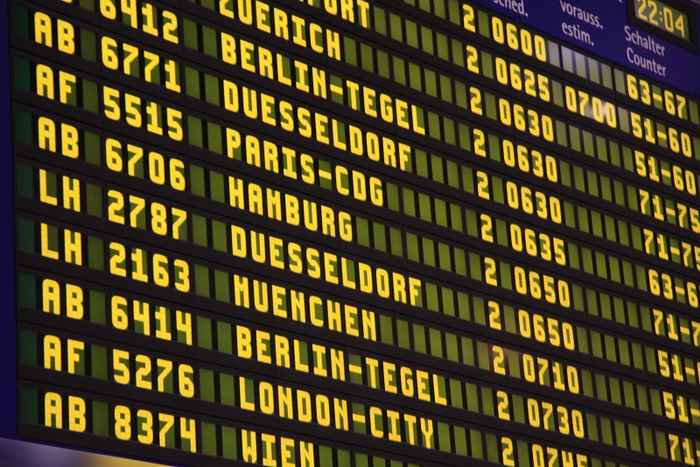
The study programme
The programme
Data Analytics is one of the tracks of the Master's Econometrics. During your Master's you will follow 4 general courses and 6 track-specific courses and electives. You will finish with a thesis. If you have excellent analytical and leadership abilities, and it is your goal to use applied research to tackle complex real-life problems, you can participate in our Honours programme. There is also an opportunity to pursue a Master’s degree in both Econometrics and Mathematics, if you opt for a Double Degree Master’s programme.
-
Data Science MethodsPeriod 15
In this course, you will cover the basic theory of multivariate data analysis and of statistical methods in data science. You will focus on the most relevant multivariate techniques, as well as their application to econometric data in computer lab sessions. We will introduce you to Python, NumPy and pandas, data scraping, cleaning and wrangling.
-
Theory of MarketsPeriod 15
In this course, you will study the microeconomic theory of perfect and imperfect competition. Learn under what conditions markets perform well as a means to organise economic activity (and under what conditions they do not).
-
Advanced Econometrics 1Period 1Period 25
In this course, you will gain a deep understanding of econometric theory, practice and inference. You will learn how to apply advanced econometric techniques in practice, extend available methods for particular applications and how to implement them in a matrix programming environment. Also, you will learn to understand and derive their statistical properties.
-
Machine Learning for EconometricsPeriod 25
In this course, you will learn to understand machine learning theory and apply your newly gained knowledge on large real-life datasets in computer lab sessions. You will be using software in Python.
-
Advanced Econometrics 2Period 35
In this course, you will build upon the general knowledge you acquired in Advanced Econometrics 1. You will gain a deep understanding of econometric theory, acquire the technical skills to conduct inference and be able to implement these techniques using software like MATLAB, R or Python.
-
Topics in MicroeconometricsPeriod 45
In this course, you will discuss 8 recent empirical papers that apply microeconometric estimation techniques. These papers usually concern issues like individual choice behaviour in the labour and consumer markets. You will apply the techniques during the computer lab sessions with MatLab or R.
-
Data Science for Digital MarketingPeriod 4Period 55
In this course, you learn about quantitative models for automated online marketing with large amounts of data. The topics we cover are today’s hot topics in automated online marketing. We discuss how techniques from statistics, econometrics, machine learning and OR are used for these real-world topics.
-
Restricted-choice electivesPeriod 25
Choose 1 out of 2 electives.
-
Restricted-choice electivesPeriod 45
Choose 1 out of 5 electives.
-
Master's ThesisPeriod 5Period 615
The academic programme culminates in a thesis, which allows you to engage with state-of-the-art data analysis and statistical techniques. The Master’s thesis is the final requirement for your graduation. It is your chance to dive deep into a topic in your field of choice (track) that you are enthusiastic about, and allows you to do an independent research project. A professor of your track will supervise and support you in writing your thesis.
Do you want to know more about the courses?
The course catalogue provides detailed information for each course, including subjects, assessment methods and recommended literature.
Honours programme
If you are a student of the Master's Econometrics and you have a record of academic excellence, a critical mind and an enthusiasm for applied research, then our Econometrics Honours programme is a great opportunity for you.
Double Degree Master's programme
If you want to pursue a Master’s degree in Econometrics as well as in Mathematics, you can opt for one of our Double Degree Master’s programmes:
- Master's in Double Degree Programme in Mathematics and Econometrics/Econometrics. In combination with all specialisations of the Master's in Econometrics.
- Double Degree Master's programme Econometrics and Stochastics and Financial Mathematics. Only in combination with the specialisation Financial Econometrics of the Master's in Econometrics.

I wanted to be an architect when I was a kid. Now I operate as a Machine Learning Engineer. The academic way of tackling a problem, something I learned during my studies, is something I still use a lot.Dolf Noordman - alumnus Master's Econometrics Read about Dolf's experiences with this Master's

One of the most important problems in air traffic is flight delays. They have important negative consequences in terms of costs, passenger demand, fares and airline reputation. Employ supervised machine learning techniques to predict the value of arrival delay (in minutes). Combine historical flight details, weather conditions and aircraft characteristics of departing and arriving flights to find an optimal set of features by combining machine learning and econometric techniques.
-
When do I need to select a specialisation track?
A specialisation track must be chosen when applying for the Master’s programme. However, track modifications are still possible until late October. The criteria for all tracks are identical and do not impact the likelihood of being accepted into the programme.
-
How many students are in the programme?
Our Master’s programme admits around 20 students per specialisation track. If you meet the entry requirements, you will always be accepted; this Master’s does not have a numerus fixus.
-
What are the weekly contact hours?
Most courses have one 2-3 hour lecture and one 2-hour tutorial per week. Generally students take 3 courses at a time, so count on about 12-15 contact hours per week.
-
Will all lectures be held in person, or will there be options for online attendance?
Our preference is for in-person lectures. Certain sessions may be pre-recorded or follow a hybrid format. This entails preparing for Question and Answer (Q&A) sessions through video clips and readings, with subsequent discussions during meetings.
-
Is attendance compulsory for lectures, tutorials, and other sessions?
Attendance is usually not compulsory for lectures, but commonly for tutorials and other sessions. Students greatly benefit from being present and engaging in discussions with both the instructor and their classmates.
-
What is the typical method of assessment for most courses?
The majority of courses have a final written on-site exam. Most courses have additional assessment methods, including oral presentations, developing research proposals, conducting experiments and writing up results. Finally, some courses grade active participation. This is reflected by attendance and activity in tutorials and online assignments.